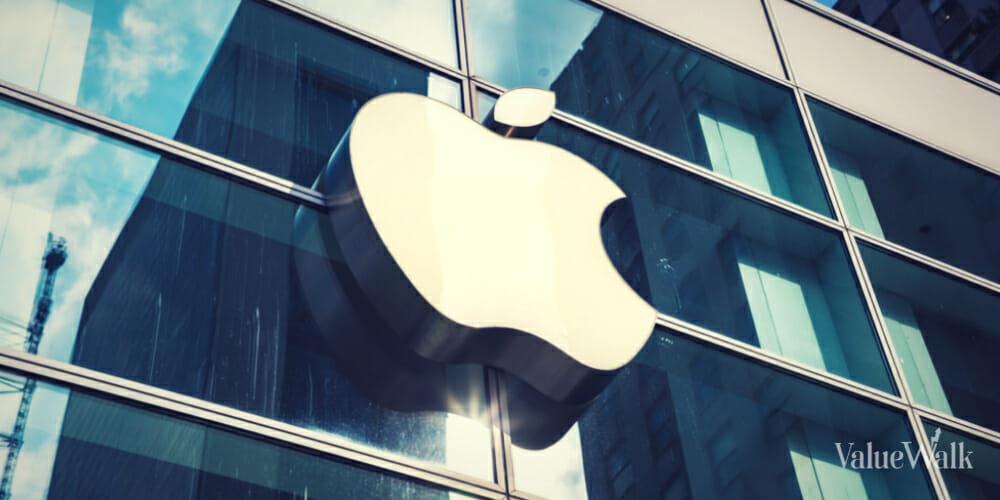
Apple's EPS Of $1.53 Beats Estimates, Fuels Post-Earnings Stock Surge
Apple Inc.'s sales for the second fiscal quarter came in at $90.75 billio , which was slightly better than the expert estimates of $90.01 to $90.36 billion, but down 4% from the same period last year. Apple's robust net income, which marginally fell to $23.64 billion from $24.16 billion, yet above projections in spite of the downturn, demonstrating the company's tenacity in a challenging economic environment.
One notable aspect of the quarter was the impressive expansion of Apple's Services business, which witnessed a 14% increase in revenues to $23.9 billion . This rise helps to somewhat offset the declines in hardware sales and shows how significant services are growing in Apple's revenue mix.
Product sales showed conflicting results. Apple's sales for the iPhone dropped to $45.96 billion, a reflection of both broader issues facing the smartphone industry and factors influencing consumer purchasing throughout the world. Nonetheless, Apple was able to surpass revenue projections in other product categories, as Mac and iPad sales exceeded estimates. The strong performance of the Mac line underscores Apple's robust market position and its ongoing innovation efforts.
Year-over-year, the decline in product sales presents considerable challenges for Apple in maintaining the growth momentum of its core products. This is especially evident when compared to the previous year's high sales, boosted by delayed purchases and a recovering market. Additionally, wider economic issues such as inflation and supply chain disruptions have further complicated the situation for Apple's hardware segments, particularly affecting iPhone sales.
This quarter's results illustrate a shifting dynamic within Apple, with the significant growth in services becoming increasingly critical amidst the variable performance of product sales and the broader economic uncertainties impacting the consumer electronics industry.
Guidance, Stock Price, and Recent ChangesThough the firm hasn't given formal financial projections, Apple Inc. CEO Tim Cook and CFO Luca Maestri are projecting moderate growth in the low single digits for the June quarter. This estimate demonstrates the company's ability to remain flexible in the face of ongoing economic shifts while still exhibiting a sound strategic plan.
Apple's stock saw a notable surge after the announcement of these financial statistics, rising 6% in after-hours trade. The market's ongoing confidence in Apple's financial stability and strategic planning is demonstrated by the favorable trend in the company's stock price throughout the year.
Central to this trust is the announcement of Apple's largest-ever share buyback program, valued at $110 billion . This initiative not only highlights Apple's robust financial reserves but also emphasizes its dedication to enhancing shareholder value, thereby making the stock more appealing. Such financial tactics are essential for keeping investor interest alive and ensuring stock stability in unpredictable market conditions.
Geographically, Apple's performance varies significantly across different regions, with its operations in Greater China drawing particular attention due to the competitive and regulatory landscape. Despite a decrease in revenue from this area, results were more favorable than many analysts anticipated, demonstrating the company's robustness in a key market. This performance has alleviated some concerns regarding potential losses in market share to domestic competitors, thus contributing to the stabilization of Apple's stock on a global scale.
In summary, Apple's strategic financial decisions and its conservative yet positive performance projections are key factors in maintaining a favorable outlook among investors. The company's adeptness at managing economic uncertainty and its commitment to shareholder value through initiatives like the share buyback program reinforce its strong standing in the global marketplace.
ConclusionTo sum up, Apple's success during the second quarter demonstrated its ability to withstand challenging market conditions. Investor confidence has been bolstered by strategic financial efforts, like the $110 billion share repurchase, which highlights the company's strong financial position. Apple's adaptability is robust even with certain regional sales declines, especially in Greater China. The company's cautiously optimistic future forecast indicates a steady course, drawing and holding on to investors with its long-term market potential.

Legal Disclaimer:
MENAFN provides the
information “as is” without warranty of any kind. We do not accept
any responsibility or liability for the accuracy, content, images,
videos, licenses, completeness, legality, or reliability of the information
contained in this article. If you have any complaints or copyright
issues related to this article, kindly contact the provider above.


















Comments
No comment